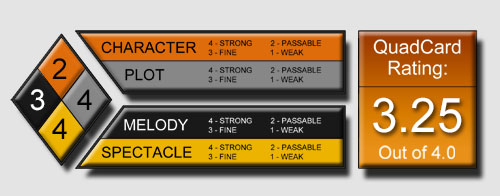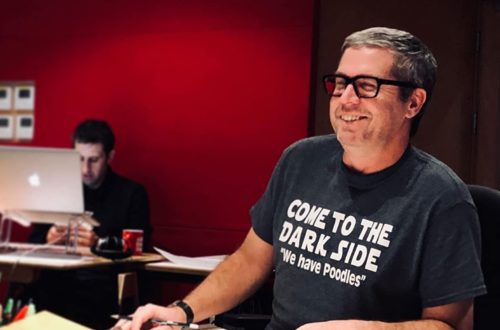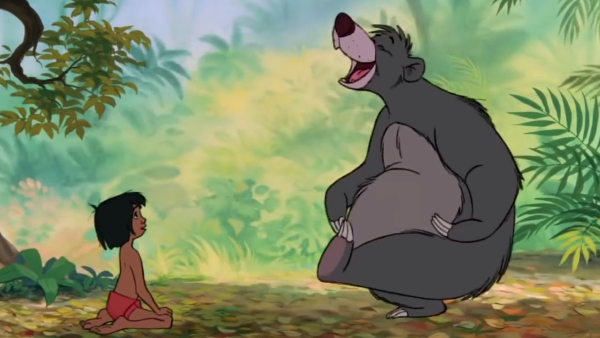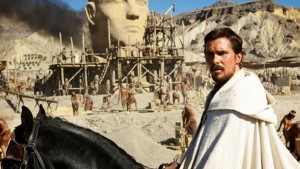 If you’re heading to see Exodus: Gods and Kings, you’d do well to remember one thing. Just because this is from the man behind Gladiator, does not mean this is going to be like Gladiator. That’s a misconception. After all, this is one of the most famous stories from the Bible, so you have to know what you’re getting into. It’s not a sword and sandal pic. In fact, it’s mostly just sandals with the distinction that it’s Ridley Scott behind the camera of this religious epic.
If you’re heading to see Exodus: Gods and Kings, you’d do well to remember one thing. Just because this is from the man behind Gladiator, does not mean this is going to be like Gladiator. That’s a misconception. After all, this is one of the most famous stories from the Bible, so you have to know what you’re getting into. It’s not a sword and sandal pic. In fact, it’s mostly just sandals with the distinction that it’s Ridley Scott behind the camera of this religious epic.
This review is not an argument for or against the film. There really is nothing wrong with Scott’s picture except for the expectations the audience might have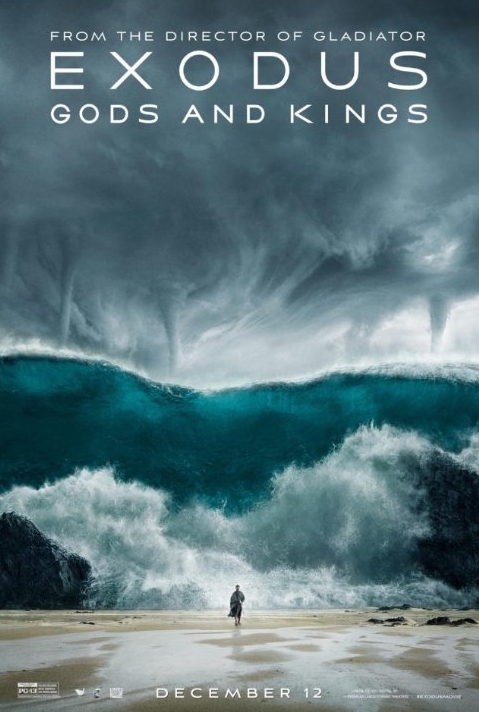 going in. Further, trivial criticisms like “the movie is too long“, or that the all-star cast (which, fairly, can lose an audience as quickly as it can get them on board) has trailing accents from scene to scene, are very minor in the grand scheme of the story. What the film doesn’t do, is paint Moses and Ramses as black and white as they’ve been in the past. Bale, as always, delivers a fine performance but it is Edgerton who does the most with his role.
going in. Further, trivial criticisms like “the movie is too long“, or that the all-star cast (which, fairly, can lose an audience as quickly as it can get them on board) has trailing accents from scene to scene, are very minor in the grand scheme of the story. What the film doesn’t do, is paint Moses and Ramses as black and white as they’ve been in the past. Bale, as always, delivers a fine performance but it is Edgerton who does the most with his role.
Most times, movies are about an experience you can’t get anywhere else. Exodus‘ story and its finale are about as grand a spectacle as you could want in cinema and Scott still puts moviegoers in awe with the magic he weaves on screen. He’s even able to thrill and entertain current audiences who literally have seen it all before. But when you consider films like Alien, and Blade Runner, you have to wonder why Scott would concern himself telling a story this well-known. He’s at the top of his game when he surprises us, but Scott’s historical epics have been hit and miss (though Kingdom of Heaven is vastly underrated). He’s also been a little cold after the well-executed Body of Lies and his pair of origin stories, Robin Hood and Prometheus, really left audiences flat.
Now, it seems to dignify the argument just by bringing it up again, but the 146 minute run time doesn’t feel that long. The bigger item to note here are signs that point to a longer cut of the story. But that’s not uncommon with Ridley Scott’s films, and after all these years you think the studio could trust him to put his version out. Actors like Ben Kingsley, Sigourney Weaver, and even Aaron Paul take more than a back seat in the journey. They nearly become scenery. It’s fair to assume they had larger parts and more influence on the story, but we’ll have to wait until the home video version to find out.
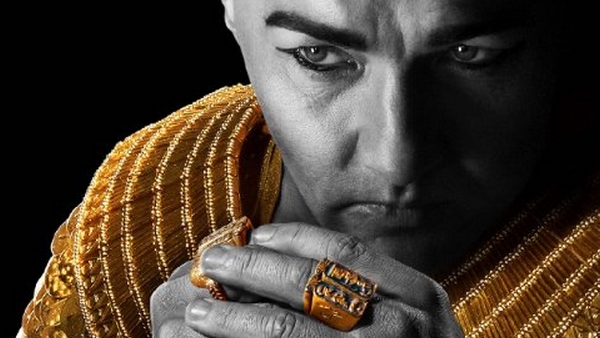
All in all, what you want, and what you ultimately get greatly determine your satisfaction with the end product. This is a big film, a powerful film, but daring to condense a man’s life to two and a half hours is no easy task. Very, very important parts of the story seem to get breezed over like Scott is presenting the Cliffs Notes of Moses’ life and it makes the message feel hollow. The plagues, Moses’ journeys, his family life, all important to the story, yet you just can’t dwell too long on any of them because it would cause the film to lag.
One of the creative liberties taken, the one that really sets the film apart is Moses’ wrestling with what God asks of him time and again. While the film again seems to rush over events in his life, things slow down here and we find Moses taking a lot of God’s word on faith. Sometimes God is there to meet with him, and other times Moses is left all alone. It’s moments like that that help drive the message home – many times we need to put ourselves out there in the hope someone else will meet us halfway. It takes even more courage to convince people to follow the same course.
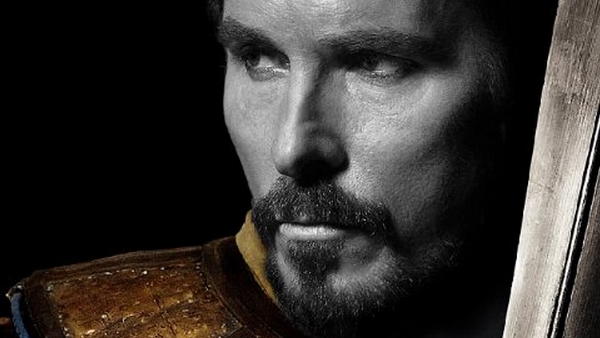
Christian Bale, Joel Edgerton, and of course Ridley Scott, are the big names helping push this movie, but the unsung heroes are, without doubt, Alberto Iglesias and Arthur Max whose sensational score and stunning set/production design respectively make this picture feel as grand as intended. Forgive the pun, but thank God for them, otherwise this could have leaned very close to a big budget classroom lecture series.
G-S-T RULING:
When it comes to Ridley Scott, a man who is a living legend in the film world, trying his hand at anything biblical takes a lot of fortitude, and skill. Not like the Scott brothers are lacking in either department, but endeavors like this are a tightrope walk; you don’t want to come off cheesy, entirely preachy, over dramatic, or all three. When the credits roll, and the audience exits, the whole production is not judged by its quality, but rather by its necessity. That is perhaps the biggest hurdle. Was this needed? Maybe not, but is it worth it? Yes it is. However, could it have been a little more thrilling and thought provoking? The answer is also yes, but that’s not exactly the point of the film.
